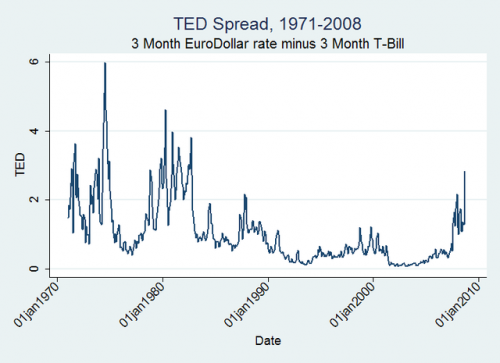What I Think is Going on With Greece
I want to offer a perspective on the Greek financial mess.
I am not confused about the Greek desire to get out from under their debt load - past governments have built up intolerable levels of debt which is costs a huge portion of Greek GDP to pay off.
At one time in my life I would have been confused by folks, often on the Left, who argue that the answer to Greek debt problems is ... deficit spending. This might have seen inexplicable to me earlier in life as a wondered how the same behavior of fiscal irresponsibility that led them into debt would get them out. But I have learned that there is no limit to the optimism Keynesians hold for the effects of government spending. The last trillion of debt may have not done anything measurable but the next trillion is always going to be the one that turns us around. Sort of like Cubs fans.
No, what confuses me today is the fact that other institutions and countries are still willing to buy Greek debt and even entertain some sort of debt swap where they end up with even more Greek debt. I have heard it said by many experts that it is unrealistic to expect that lenders will get even a fraction of their principle back from these loans. So why loan more?
The key for me in understanding this is the book "Engineering the Financial Crisis". In that book, the authors presented the theory that the Basel capital accords, which set capital requirements for banks, had a lot to do with the last financial crisis. Specifically, the rules allowed bank investments in two types of securities to be counted at 100% towards their capital levels. Any other type of investment was severely discounted, so there were enormous incentives in the regulations to focus bank investments on these two types of securities. What were they? Sovereign debt and mortgages (and mortgage-backed securities).
In the authors' view, which I find persuasive, a lot of the last financial crisis was caused by these rules creating a huge artificial demand by banks for mortgage securities. This created a sort of monoculture that was susceptible to small contagions spreading rapidly. As this demand for mortgage backed securities inevitably drove down their returns, it also created a demand for higher-yielding, riskier mortgage investments that might still "count" as mortgage securities under the capital requirements.
Anyway, for the Greek crisis, we need to look at the other piece of these capital requirements that give 100% capital credit: sovereign debt. Now, I may have this wrong, but for Euro denominated credit, it all counts as 100% whether its German or Greek, which is a bit like saying a mortgage to Bill Gates and a mortgage to Clark Griswold's country cousins count the same, but those are the rules.
So here is the problem as I understand it: Greek debt, because of its risk, paid higher returns than other sovereign debt but still counted the same against capital requirements. So European banks loaded up on it. Now that the debt is clearly bad, I am sure they would love to get paid for it. But what they want even more is to continue to get credit for it on their balance sheets against capital requirements. So what the banks need more than getting paid is for the debt to still exist and to (nominally) be current so that they can still count it on their balance sheets. Otherwise, if the debt gets written off, that means banks need to run out and raise hundreds of billions in new capital to replace it.
Yes, I know this seems insane. If everyone knows that the debt is virtually worthless, isn't it a sham to keep taking expensive steps (like issuing even more new debt) just to make sure the debt still appears on the books at 100%? Yes, of course it is. This is a problem with just about every system ever tried on bank capital requirements. Such requirements make sense (even to this libertarian) in a world of deposit insurance and too big to fail, but they can and do create expensive unintended consequences.



